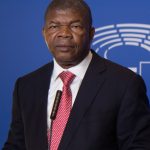Politics
Angola Politics
This page explores Angola’s political structure incorporating real-time RSS feed news and videos. By harnessing the power of RSS feeds, visitors can stay informed about the latest developments in Angola’s politics as they happen. The dynamic nature of these feeds ensures that users receive up-to-the-minute updates on political events, policy changes, and significant milestones, enabling them to stay abreast of the ever-evolving political scene.

João Lourenço
President of Angola
Incumbent
Assumed office
26 September 2017
Image credit
Angola’s political structure is characterized as a presidential republic. The country is led by a President who serves as both the head of state and the head of government. The President is elected through a national popular vote for a five-year term and holds significant executive powers, including control over the armed forces and the administration of government affairs. The President appoints members of the government and plays a central role in shaping and implementing national policies.
The legislative branch of Angola’s government is the National Assembly (Assembleia Nacional), which is a unicameral legislature consisting of 220 members. Members of the National Assembly are elected by proportional representation for four-year terms. The National Assembly is responsible for making and amending laws, and it plays a crucial role in the country’s political landscape. Angola has experienced a period of political stability and economic growth following the end of its civil war in 2002. However, the country still faces challenges related to governance, corruption, and the need for economic diversification and social development.
Unless other sources are listed, original content is provided by ChatGPT. ChatGPT may produce inaccurate information about people, places, or facts. #Angola #AngolaPolitics #AngolaNews #AngolaNewsToday #AngolaRSSFeed #BlahFace



